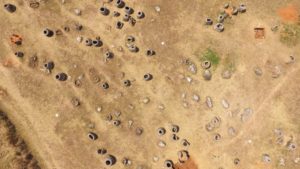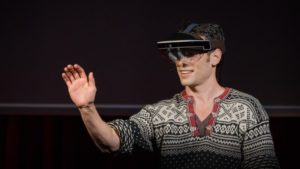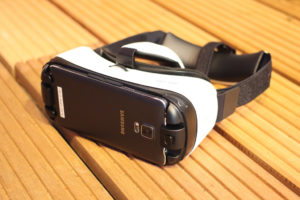
The Plain of Jars in Phonsavan, Laos.
Virtual reality provides an opportunity to recreate and explore the past, especially in areas where little is known about its history. The Plain of Jars, an ancient site littered with mysterious stone jars, is being replicated virtually by Australian archaeologists. Researchers from the Australian National University and Monash University are using a new mapping technology called Cave2 as part of the Plain of Jars pending UNESCO World Heritage site application. The University of Southampton is also looking at using technology to recreate archaeological sites in Spain and Egypt.
Without one leader in VR hardware, companies ranging from Samsung to Facebook to Oculus are vying to find the perfect mix of affordability, high quality graphics and usability. Although this means it’s unclear which features of VR will prove most popular, low cost – specifically the $99 price tag of the new Samsung Gear VR – might be what brings new technology to the masses. Vulture also put together a helpful breakdown of the available VR headsets.

The Meta 2 AR goggles.
How is it possible to work for a tech startup that has no computers monitors? Use AR glasses. Meron Gribetz, the founder and CEO of Meta, will have his employees use the company’s own AR technology to test whether this will lead to increased productivity. Now imagine having your emails floating around you as 3-D objects.
As VR technology is increasingly used in everyday activities, questions arise about its inclusivity, specifically for people who are blind or whose vision is impaired. Conversely, there is also the prospect that it can be “a powerful method to allow the person to be aware of their surroundings and make informed decisions on navigation and interaction.”
For fun: Can you figure out which uses of VR are real or fake?


